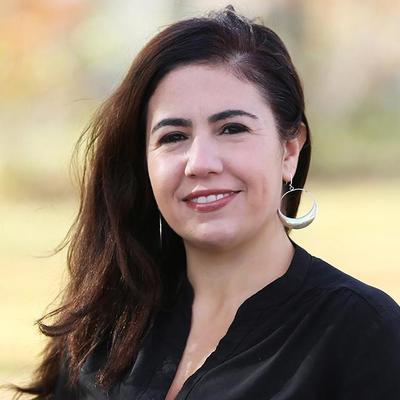Date:
Location:
The CMES Book Talk Series presents
Hiba Bou Akar
Assistant Professor, Graduate School of Architecture, Planning and Preservation, Columbia University
Beirut is a city divided. Following the Green Line of the civil war, dividing the Christian east and the Muslim west, today hundreds of such lines dissect the city. For the residents of Beirut, urban planning could hold promise: a new spatial order could bring a peaceful future. But with unclear state structures and outsourced public processes, urban planning has instead become a contest between religious-political organizations and profit-seeking developers. Neighborhoods reproduce poverty, displacement, and urban violence.
For the War Yet to Come (Stanford University Press, 2018) examines urban planning in three neighborhoods of Beirut's southeastern peripheries, revealing how these areas have been developed into frontiers of a continuing sectarian order. Hiba Bou Akar argues these neighborhoods are arranged, not in the expectation of a bright future, but according to the logic of "the war yet to come": urban planning plays on fears and differences, rumors of war, and paramilitary strategies to organize everyday life. As she shows, war in times of peace is not fought with tanks, artillery, and rifles, but involves a more mundane territorial contest for land and apartment sales, zoning and planning regulations, and infrastructure projects.
Hiba Bou Akar is an Assistant Professor in the Urban Planning program at Columbia GSAPP. Her research focuses on planning in conflict and post-conflict cities, the question of urban security and violence, and the role of religious political organizations in the making of cities. Bou Akar’s recent book, For the War Yet to Come: Planning Beirut’s Frontiers, examines how Beirut’s post-civil war peripheries have been transformed through multiple planning exercises into contested frontiers that are mired in new forms of conflict. It contributes to planning thought by studying planning practice within a framework of past and anticipated violence. Her first co-edited book, Narrating Beirut from its Borderlines, published by Heinrich Böll in 2011, incorporated ethnographic and archival research with art installations, architecture, graphic design, and photography to explore Beirut’s segregated geographies. Bou Akar’s research has been supported by the National Science Foundation (NSF), the Social Science Research Council (SSRC), the Wenner- Gren Foundation, and the Arab Council for the Social Sciences (ACSS).
Bou Akar is leading the newly-established Post-Conflict Cities Lab at GSAPP. The Lab will focus on post-conflict urban planning and will engage in research on the ways in which planning practice in contested cities has been simultaneously a tool of pacification, conflict, and development. The Post-Conflict Cities Lab’s inaugural project is funded by a grant from the Ford Foundation that Professor Bou Akar received to study “Urban Research and Practice in Post Conflict Settings in the Middle East and North Africa (MENA) Region.”
Bou Akar received her Ph.D. in City and Regional Planning with a designated emphasis in Global Metropolitan Studies from the University of California at Berkeley. She holds a Bachelor of Architecture from the American University of Beirut (AUB) and Master in Urban Studies and Planning from the Massachusetts Institute of Technology (MIT). Before joining Columbia GSAPP, Bou Akar taught at Hampshire College and the American University of Beirut and was a postdoctoral fellow at Harvard University’s Mahindra Humanities Center. She has also worked as an architect and planner and as a research consultant with local NGOs and international UN organizations in the Middle East. She is the co-editor of Jadaliyya Cities, an online electronic journal addressing urban issues in the Middle East region.
Contact: Liz Flanagan
